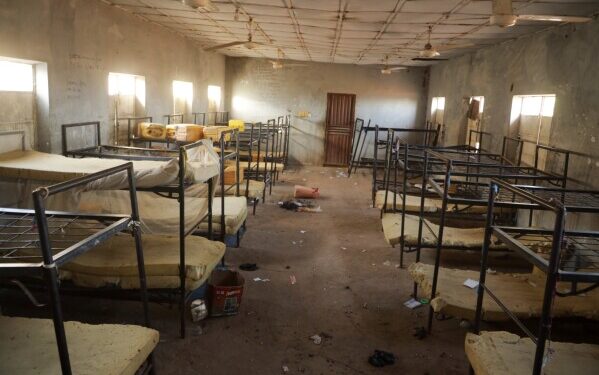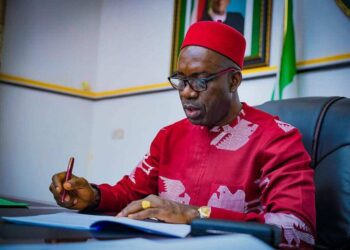The Chairman of Danko-Wasagu Local Government Area in Kebbi State has directly contradicted claims by United States Congressman Riley Moore that the recently kidnapped Maga schoolgirls were taken from a Christian community, stating categorically that all 25 abducted students are Muslims.
Hussaini Aliyu dismissed Moore’s assertion as false and misleading, warning that such unverifiable statements could inflame religious tensions at a critical moment when security agencies should be focused entirely on rescuing the students.
The local government chairman’s rebuttal comes after Moore posted on social media platform X claiming knowledge that the attack occurred in what he described as “a Christian enclave in Northern Nigeria,” a characterization that Aliyu insists bears no relation to reality on the ground.
To substantiate his position, the LG chairman released the complete list of names of all 25 abducted girls, which clearly indicate their Muslim identity. The names include Fatima Sani Zimri, Hafsat Ibrahim, Nana Firdausi Jibril, Masauda Yakubu Romo, Hauwa Saleh, Hauwau Umar Imam, Salima Garba Umar, Salima Sani Zimri, Amina G. Umar, Rashida Muhammad Dingu, Saliha Umar, Aisha Usman, Jamila Iliyasu, Maryam Illiyasu, Najaatu Abdullahi, Zainab Kolo, Surraya Tukur, Hafsat Umar Yalmo, Maryam Usman, Amina Illiyasu, Ikilima Suleman, Khadija Nazifi, Hauwa’u Iliyasu, Hauwa’u Lawali, and Ummu Kulsum Abdulkarim.
The students were distributed across different classes at Government Girls Secondary School, Maga, with four from Senior Secondary School 2A, two from SSS 2B, nine from SSS 3A and 3B, five from Junior Secondary School 3A, and five from JSS 2.
Aliyu urged the American congressman to refrain from making statements that lack factual basis and could potentially worsen religious or ethnic divisions within Nigeria at a time when national unity is essential for addressing security challenges.
The chairman emphasized that the priority should remain securing the safe return of the abducted students rather than promoting narratives that distort facts and misrepresent the situation on the ground.
He provided additional context by noting that the Zuru Emirate, under whose jurisdiction the Maga community falls, has never experienced religious crises or sectarian conflicts throughout its history, making Moore’s characterization particularly problematic and inaccurate.
According to Aliyu, attempts to frame the abduction along religious lines not only misrepresent reality but also paint Nigeria in an unfairly negative light internationally, potentially complicating diplomatic relations and rescue efforts.
Moore had written on his social media account: “Please join me in praying for the 25 girls who have been kidnapped and for the repose of the soul of their vice principal who was killed. While we don’t have all the details on this horrific attack, we know that the attack occurred in a Christian enclave in Northern Nigeria. The Nigerian government must do more to end the rampant violence.”
The congressman’s statement, made on Tuesday, came despite his own admission that he did not have complete details about the incident, raising questions about the sources informing his characterization of the affected community.
Aliyu’s detailed rebuttal, backed by the specific names of all abducted students, directly challenges the narrative that has gained traction among some American lawmakers who have characterized Nigeria’s banditry and insurgency problems as systematic religious persecution of Christians.
The development adds another dimension to the escalating diplomatic tensions between Nigeria and the United States over how to characterize the West African nation’s complex security challenges.
The Nigerian government has consistently maintained that violence in various parts of the country affects citizens of all religious backgrounds and stems from terrorism, banditry, and economic criminality rather than religious persecution.
Local officials like Aliyu, who have direct knowledge of their communities, are now stepping forward to correct what they view as dangerous mischaracterizations that could exacerbate rather than resolve Nigeria’s security problems.
The chairman’s intervention highlights a growing frustration among Nigerian authorities at various levels with international actors who they believe are imposing simplistic religious frameworks on multifaceted security crises without adequate understanding of local realities.
As rescue operations continue in forests surrounding Maga, with security forces maintaining pressure on the bandits who carried out the Sunday abduction, the debate over how to accurately characterize the attack threatens to overshadow the urgent humanitarian priority of recovering the 25 Muslim schoolgirls whose names have now been made public.
For the families of Fatima, Hauwa, Aisha, Maryam, and the other 21 girls whose names Aliyu released, the focus remains on prayers for their daughters’ safe return rather than on international disputes over religious narratives that they insist do not reflect their lived reality.




















